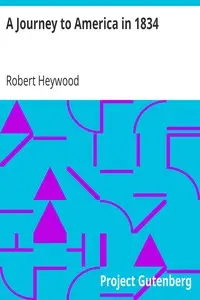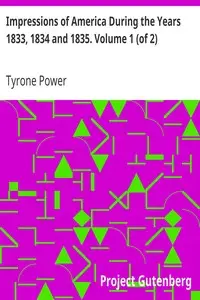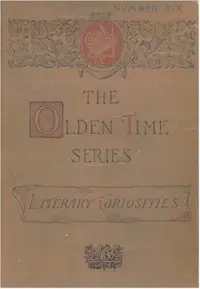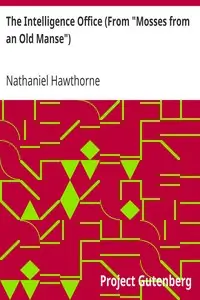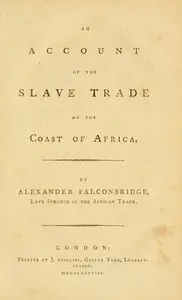"A Visit to the United States in 1841" by Joseph Sturge is a record of the author's travels in America during a time of great social conflict. He observed and documents everything he sees related to slavery and the movement to end it. As someone who believes in freeing enslaved people, Sturge tells about the hard questions of what is fair in society, protecting people's rights, and the need to end slavery. From the beginning, when Sturge boards a ship to America, he shares his anxiety for those who are enslaved. Along the way, he talks to people who both support and oppose slavery, showing the different views in the country. His time on the ship shows him the social classes and biases of the area. He gets to know important people who want to end slavery, like the Tappan brothers and Whittier. When he arrives in cities such as New York and Philadelphia, he sees the struggle between people who want to keep slavery and those who are fighting for freedom, giving a preview of the deep thoughts and important arguments that will fill his journal.

A Visit to the United States in 1841
By Joseph Sturge
Embark on a journey through early America with a compassionate traveler as he navigates a nation divided by slavery, seeking justice and equality for all.
Summary
About the AuthorJoseph Sturge was an English Quaker, abolitionist and activist. He founded the British and Foreign Anti-Slavery Society. He worked throughout his life in Radical political actions supporting pacifism, working-class rights, and the universal emancipation of slaves. In the late 1830s, he published two books about the apprenticeship system in Jamaica, which helped persuade the British Parliament to adopt an earlier full emancipation date. In Jamaica, Sturge also helped found Free Villages with the Baptists, to provide living quarters for freed slaves; one was named Sturge Town in his memory.
Joseph Sturge was an English Quaker, abolitionist and activist. He founded the British and Foreign Anti-Slavery Society. He worked throughout his life in Radical political actions supporting pacifism, working-class rights, and the universal emancipation of slaves. In the late 1830s, he published two books about the apprenticeship system in Jamaica, which helped persuade the British Parliament to adopt an earlier full emancipation date. In Jamaica, Sturge also helped found Free Villages with the Baptists, to provide living quarters for freed slaves; one was named Sturge Town in his memory.


